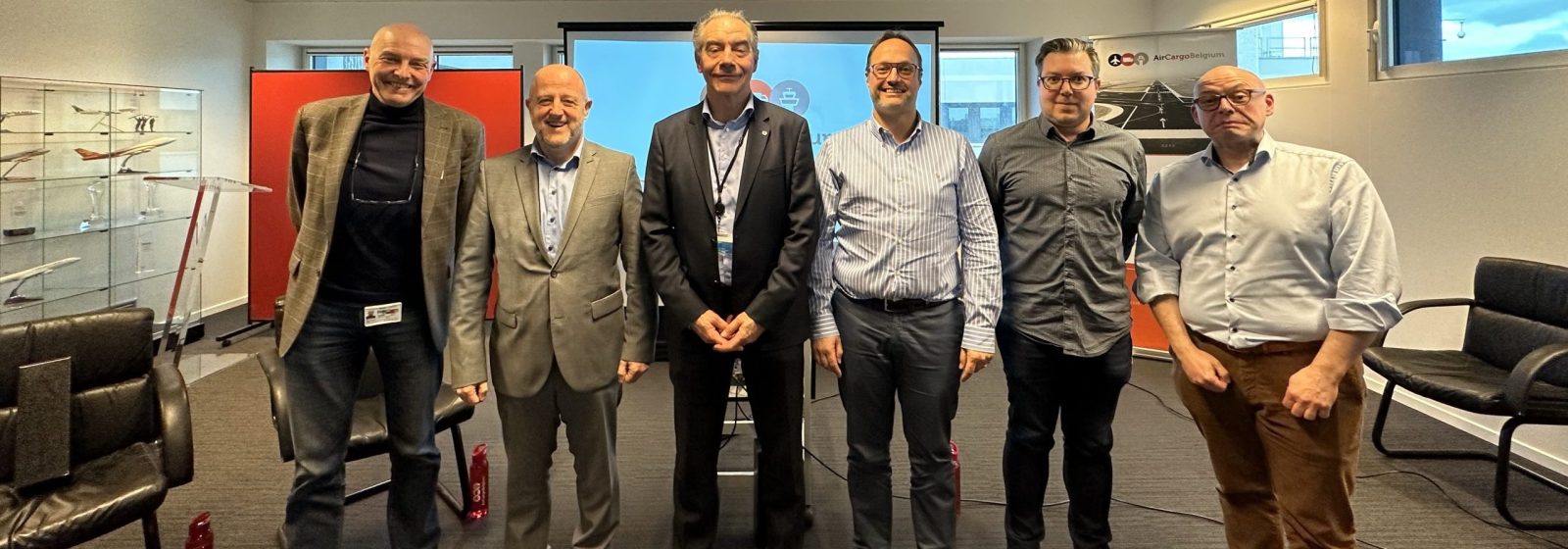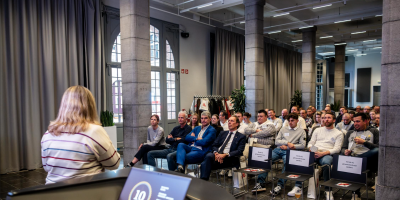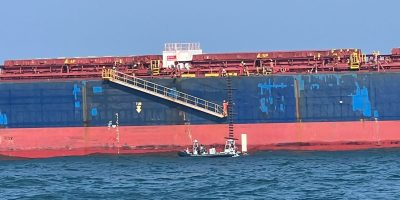
In the air cargo sector, ICS2 will go live from 30 June 2023. Ivan Verborgh, head of ICT at Customs, explained during Cargo Talks, an initiative of Air Cargo Belgium, what exactly will change and how urgent the introduction is. You can also read this contribution in our paper magazine dedicated to customs.
The development of a fully electronic customs system is one of the European Union’s main objectives. In that context, Europe developed the multi-annual strategic plan for electronic customs (Multi-Annual Strategic Plan or MASP), through which customs procedures at EU level are gradually evolving from paper-based to electronic procedures. “The European commitment, prompted by the Union Customs Code (UCC), aims to optimise data exchange,” explained Ivan Verborgh, head of ICT at customs. “The aim is to improve data quality and implement the European data model, which should lead to improved performance.”
A first step in MASP is the Import Control System or ICS2, a new customs pre-arrival safety and security programme. Customs was given EUR 20 million to accelerate MASP. “With that programme, we want to aim for zero downtime and smaller components. Today we use PLDA (PaperLess Customs and Excise, ed.), but that system is a mastodon and quite old. We want to cut it into pieces and reuse certain components where useful and possible.”
ICS2 for the air cargo sector will start on 30 June 2023. “That is the final deadline, as the implementation date has already been postponed once,” explains Verborgh.
Finding the right information
The participants in the panel discussion are well aware that the deadline is fast approaching. Mario Destoop (EFL Global), representing the forwarder community, sees numerous challenges. “The forwarders ensure the best possible supply chain. We are the last link in the story. Yet it is peculiar that we are involved very late in the ICS2 story. We had made all the necessary preparations to be ready by 1 March 2023 and had provided the necessary resources internally. The late notification of postponement came as a surprise. The biggest challenge is finding the right information. Moreover, there is a lack of uniformity. The airport in Brussels, for example, does not work in the same way as those in Liège and Ostend. I hope the new system will still create some uniformity.”
Paul Van den Bulck (Aviapartner), who represents the handler community, concurs with what Destoop says. “Until now, there was always one-to-one communication with customs. With the new system, that will be different. Then we will have the data in several places. In what way will I get that information? ICS2 is just the first in the queue of implementations and will seamlessly transition into Temporary Storage Declaration (TSD), which should be implemented by the end of quarter four of 2023.”
Doing homework
The airline community also expresses concern. Michael Gomez (DHL Aviation): “We are at the beginning of the chain. Data availability and quality are a big responsibility. We depend on customers for that. We have been informing them and guiding them along for some time. However, we all need to be aware that it will take time to evolve towards 100% data availability at the beginning of the chain.” Airlines are not necessarily customs representatives, but professional competence will now fall to them. “Checking customers’ data through all stages of this story will be necessary. The focus should be not to compromise on data quality in the exchange.”
Bjorn Bollingh (Crossroad Communications) sees everyone looking to the next in line to take responsibility. “Everyone has to do their homework: software vendors, customs and operators. Apart from the operators’ operational rights and obligations, which are not yet fully clarified, the technical agreements must also be in place between customs and software suppliers. It is working in circles towards the same goal. We hope that all operators can test everything before we have to go into production.”
Economic hatch too
Destoop emphasises that this story involves not only a customs hatch, but also an economic one. “If customs decides to stop a shipment, there are potentially negative financial consequences that can go far. An airline can impose fines for a ‘no show’. We have not yet figured out where the responsibility lies. Who will act and cover there? As a forwarder, we should not lose sight of the economic story, and we should be in closer contact with customs.”
According to Gomez, communication and cooperation are the drivers to make something of it. “It is new for all parties. That is also why we have to be tolerant. Everyone will have to learn from each other.”




